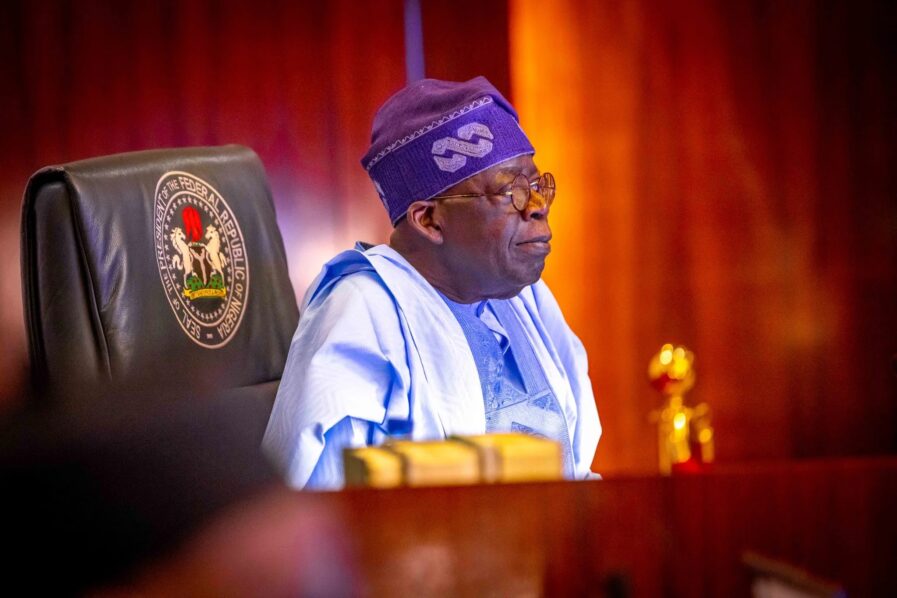
• Commits to dialogue in resolving national issues
• Hails contributions of some non-state actors
President Bola Tinubu has called on governors of the 36 states to collaborate with the federal government to provide relief to Nigerians amid economic challenges.
At yesterday’s Pan-Yoruba-Itsekiri Global Summit, organised by the Alliance for Yoruba Democratic Movement (AYDM) in Lagos, the President urged aggrieved groups to leverage the power of dialogue rather than violent protests to address issues and achieve meaningful outcomes.
“We need people to maintain the peace. Our administration believes in resolving conflicts through negotiation and dialogue. Recall that labour went on strike over the minimum wage, but they met and it was increased to N70,000. That is the power of negotiation and dialogue. So, we recommend this to various groups that think they have issues with the government,” he said.
Tinubu, who was represented by his Senior Special Assistant on Media Affairs, Tunde Rahman, also condemned the negative role of non-state actors but hailed those whose activities proved useful to the country’s political ecosystem.
“Those who use force of arms to perpetrate evil and cause mayhem should be made to face the consequences of their actions. I am talking of bandits, kidnappers, militia groups, armed robbers and other criminals, who daily terrorise our people. They do not represent us and should be exterminated,” he said.
Noting, however, that some non-state actors were doing the positive, he said they had been criticised for doing what otherwise should be the exclusive responsibility of security agents if they are to live up to their billing.
“I am referring to those who protect our pipelines from attack and vandalism, which we must, at least, acknowledge for making a positive contribution to the country. Those are the two divides and ways I perceive the non-state actors in our society. I would be glad to have the views of other participants at this summit on this issue.”
Chairman of the occasion, Adewale Adeoye, in his opening remark, said the summit was coming at a time when the country was facing a very difficult and unpredictable future and when the three main indices of development, notably food, human and environmental security and leadership with good conscience that brings hope to the long-suffering people were threatened.
Adeoye stated: “Supporting democracy is not about those in power but about the right of the people to choose, question and democratically engage their leaders.
“I am aware the process of even choosing the right leaders by the people in Nigeria is flawed; but it does not justify the call for military intervention.”
Insisting that Nigeria cannot continue to go this way, he said it must address the hydra-headed problem of food scarcity, insecurity and leadership deficit.
According to him, the best way to lay the foundation for the resolution is for Nigeria to go back to the dream of the founding fathers, who had opted for a country where each ethnic group could develop on its terms.
“The greatest pathway to this goal is to restructure Nigeria to stem the violent clashes of civilizations,” he proffered. Kudu Abubakar, representing Arewa Community, described the country’s democracy as a fraud being perpetrated by some people from the North and South for their own selfish interest, declaring that democracy as practised by people in power damaged the country.
Dare Adesope decried high-level insecurity in the South West, even as he noted that the Yoruba, who regarded farming as their mainstay, could not go to farm as they would have loved to do, due to insecurity.
Director General, Development Agenda for Western Nigeria (DAWN) SeyeOyeleye, noted the need for collaboration, dialogue and advocacy among stakeholders. AYDM General Secretary, Popoola Ajayi, noted ongoing attempts by the government to impose a unitary system of government under the guise of local council autonomy.
He added: “We must resist any attempt to centralise power in a way that stifles regional autonomy and innovation. Instead, we must advocate the restructuring of our country in a manner that allows each region to develop at its own pace.
“We must also interrogate the recent actions by the Ministry of Education, particularly attempt to prevent children under the age of 18 from writing O’Level exams.”






